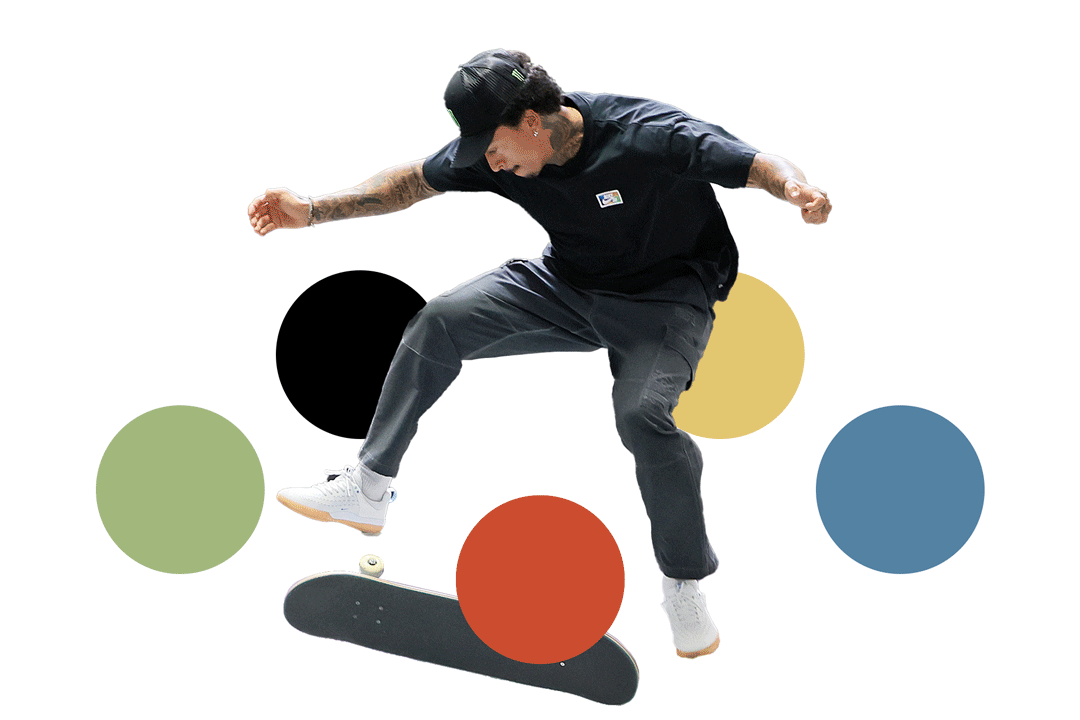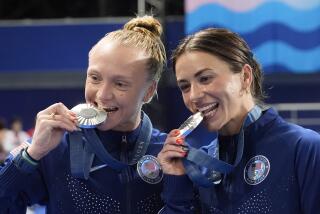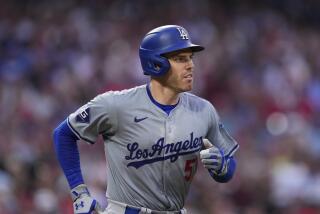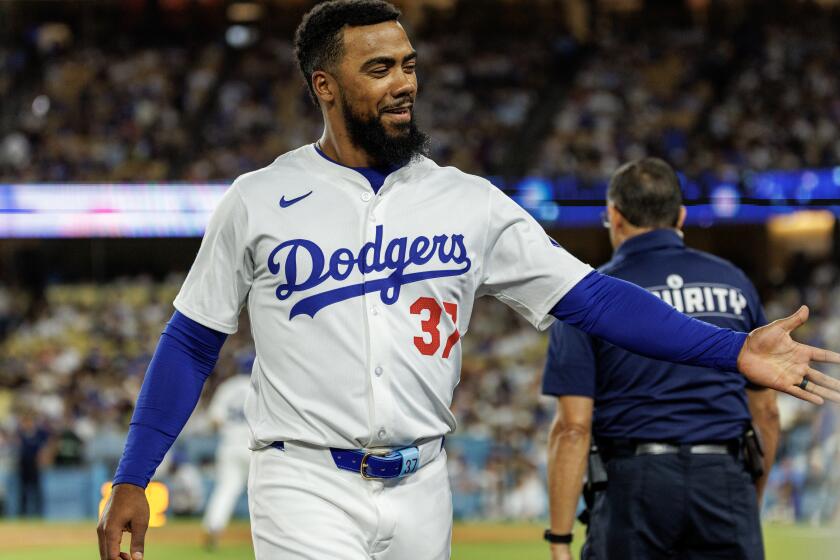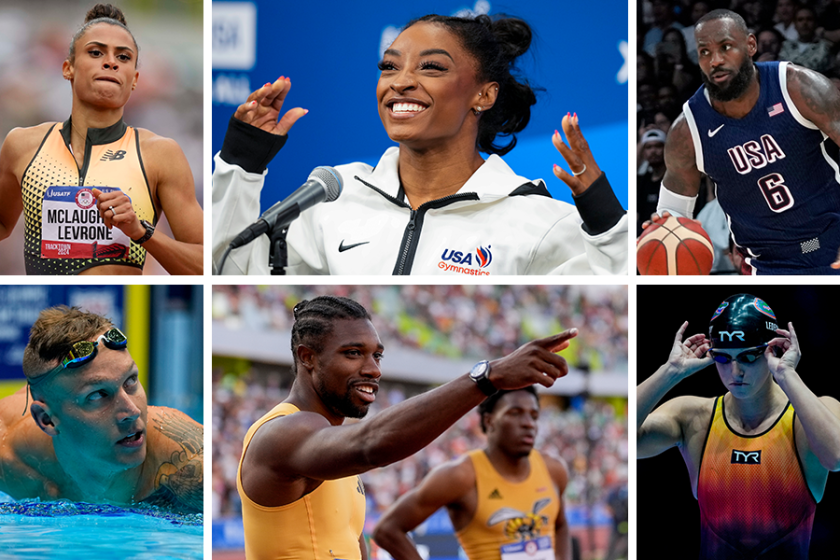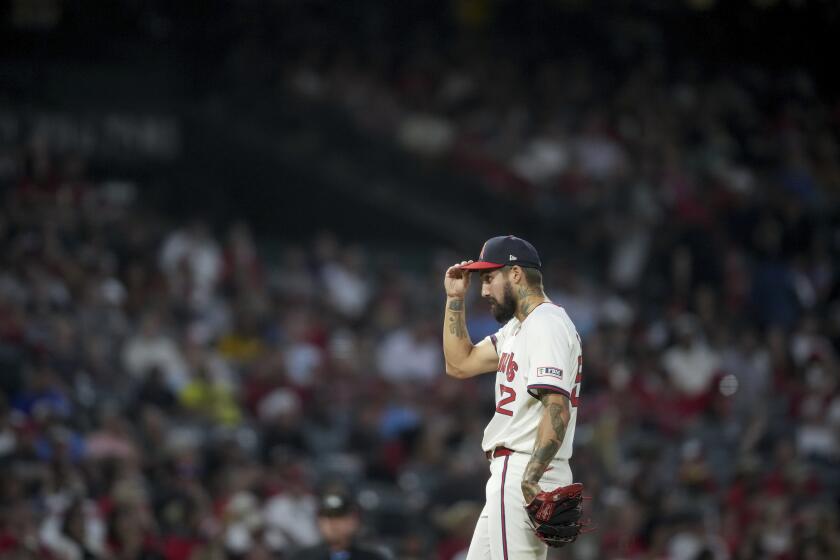He Learned to Live With Learning Disorder : Baseball: First baseman Rob Nelson’s only problem with dyslexia seems to be other people’s perception of it.
Rob Nelson has dyslexia. Sometimes he sees letters reversed, and sometimes he misses letters and words completely. It makes reading books, magazines and newspapers difficult.
“I shied away from reading, especially after I got into high school and we had to read textbooks in class,” said Nelson, a first baseman in the Chicago White Sox farm system.
But Nelson says dyslexia doesn’t affect his skills on the baseball field. He can hit a ball 400 feet or field all manner of errant throws from his position at first base.
“Actually, as I got older, (sports) were not only an escape, but they were easier to pick up,” he said.
As an athlete he listened, watched and mimicked. You can read a how-to book about baseball, but that’s not going to make you a good player, Nelson said.
In baseball, you learn by doing. And, as long as he wasn’t counted on to read, Nelson was a good learner.
Often, he picked up the game’s subtleties more easily than teammates who were far more gifted in the classroom. Sometimes, he wondered if there wasn’t something wrong with them .
Only when he turned professional did Nelson’s dyslexia hinder his athletic advancement. And then it was because of others’ ignorance of dyslexia.
A scout from the Atlanta Braves told Nelson, a standout at South Pasadena High School and Mt. San Antonio College, that he’d never get an appropriate signing bonus because of his learning disorder.
A man, not knowing whom he was sitting next to at a game, asked Nelson’s father and wife if Nelson “still had that speech problem.”
And the topper: After Nelson had spent six seasons as a pro with with the Oakland and San Diego organizations, the Padres’ minor league director likened Nelson’s dyslexia to a pulled muscle.
“We feel dyslexia affects him like another player is affected by a muscle pull or sore finger,” Tom Romenesko told The Times in 1989. “We believe it’s an eye-muscle problem that can affect his swing. If you look at his scouting reports, there is a certain pitch he can’t hit, and we wonder if it’s because he can’t properly track the ball as it comes from the pitcher.
“If he works on it, it’s no big deal, just like the guy with the pulled muscle. He is a major league caliber player who will probably play a lot of years in the big leagues. We are very high on him. He just has to keep working on his problem.”
Nelson said that’s nonsense. Reading books is nothing like reading pitchers.
“I really sat back and laughed,” he said of Romenesko’s comments in 1989. “People always thought (dyslexia) would affect my career. People thought it would affect me learning baseball. I think it’s the complete opposite. I think it’s easier for me to pick things up.
“What’s hurt me more than anything is people see ‘dyslexia’ and it’s a big word, and it’s spelled funny. . . . But it doesn’t have an effect on my playing.”
More to Read
Go beyond the scoreboard
Get the latest on L.A.'s teams in the daily Sports Report newsletter.
You may occasionally receive promotional content from the Los Angeles Times.
